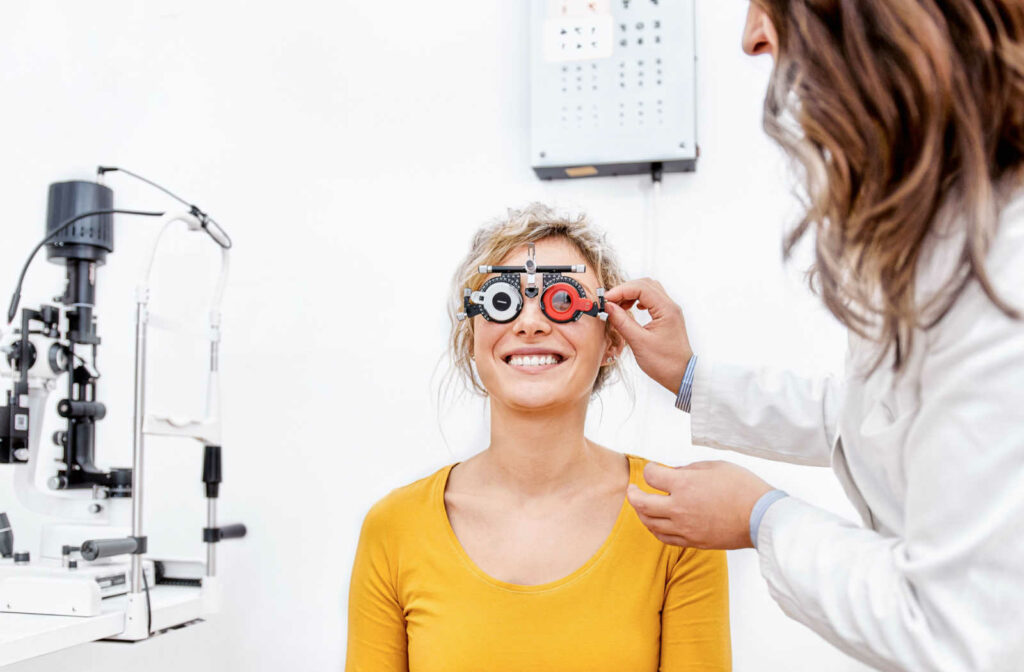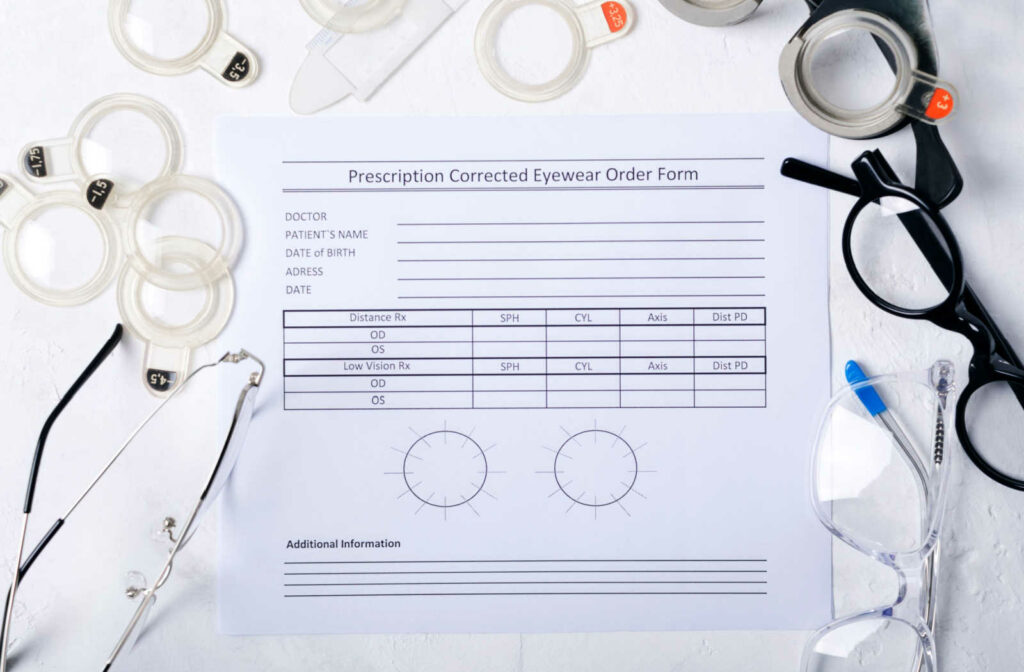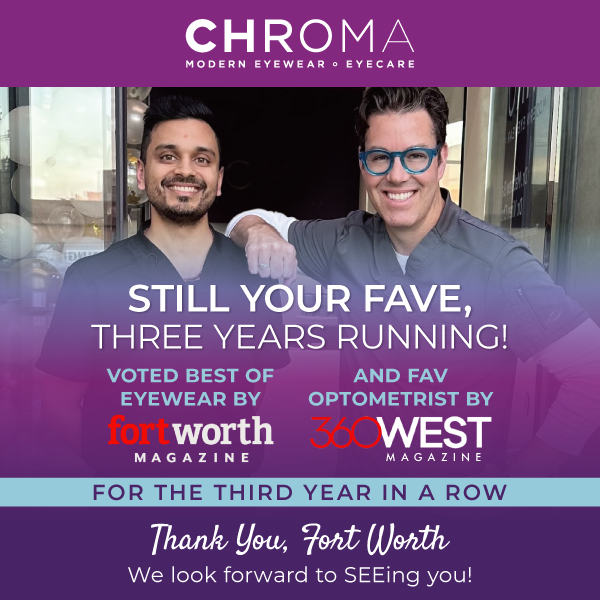Does Wearing the Wrong Prescription Make Your Eyes Worse?
Whether you wear glasses or have 20/20 vision, trying on glasses or contact lenses with a prescription not suited to your eyes can be uncomfortable.
Your prescription is based on the results of your comprehensive eye exam and is designed to correct any refractive errors that cause your vision to appear blurry or distorted. With the right prescription, you can see clearly and comfortably.
But is wearing the wrong prescription bad for your eyes? Our team at CHROMA modern Eyewear Eyecare has the answer.
Is Wearing the Wrong Prescription Dangerous?
Wearing the wrong prescription eyeglasses isn’t dangerous, nor will it damage your eyes or negatively affect your prescription.
However, wearing the wrong prescription can be uncomfortable for many people.
Have you ever asked a friend to try their glasses on just to see how they look? You probably noticed your vision became instantly distorted or blurry, and your eyes may have felt sore after you took the glasses off.
Your eyes are trying to compensate for the wrong prescription, which can put a lot of undue strain on your eyes. Wearing the wrong prescription, especially for long periods of time, can make your eyes feel tired and uncomfortable.
Again, this isn’t dangerous, but it’s certainly uncomfortable.
Additionally, our eyes are constantly changing as we grow, which means our prescription can change over time, too. While your current prescription may be working for you, it’s possible that your prescription could change over the next few years.
This is why regular eye exams are key to clear, comfortable vision. Comprehensive eye exams update your prescription, as well as look for signs of other visual conditions and ocular diseases.
Benefits of Wearing the Right Prescription
See Clearly & Comfortably
The right prescription gives you clear vision that is also comfortable. This means you can see clearly (20/20 vision is the goal for all corrective lenses) and it doesn’t put additional strain on your visual system.
Avoid Dizziness
Wearing the wrong prescription for long periods of time can make some patients feel dizzy or as though they have vertigo. The wrong prescription can distort your visual field which can make you feel dizzy or nauseous.
Your eyes are working hard to try and correct the images being perceived. Wearing the right prescription takes the work away from your eyes, allowing you to relax.
Fewer Headaches
While you may still experience headaches, it won’t be from wearing the wrong prescription.
As aforementioned, the wrong prescription can put undue stress on your eyes and visual system. This can result in more frequent headaches.
Wearing the right prescription won’t cause headaches. If you’re experiencing frequent headaches, but your prescription is correct, it could be related to another issue. Your optometrist can perform an eye exam to help find the cause of your headaches.

How Do I Figure Out My Prescription?
The best way to figure out your prescription is to schedule a comprehensive eye exam. The doctors at CHROMA will perform a few tests to determine your prescription, such as:
- Corneal Topography: maps the curve of the cornea
- Refraction Assessment: measures eye prescription
- Visual Acuity: measures focusing ability at varying distances
- Visual Field Test: measures peripheral vision
While it can take some time to adjust to new glasses and new prescriptions, the adjustment period should subside after a few days of wearing your new prescription regularly.
Patients who have an outdated or incorrect prescription may experience symptoms like:
- Blurred vision
- Frequent squinting
- Eye fatigue
- Eye strain
- Soreness around/behind the eyes
- Light sensitivity
- Headaches
If you experience any of these symptoms, visit one of our knowledgeable doctors at CHROMA.
We Can Help
If you think you may have the wrong prescription, or you haven’t visited a Doctor of Optometry in a few years, you should book a comprehensive eye exam.
Our experienced team at CHROMA modern Eyewear Eyecare can help you update your prescription, find you glasses and lenses that provide you with clear, comfortable vision, and even check for signs of disease or other visual conditions.



